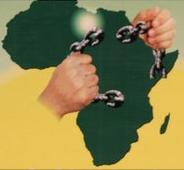Over 200 African Leaders: NATO’s Libyan War Part Of Plan To Recolonize Continent

A group of African intellectuals has written an open letter criticising the NATO-led military attacks on Libya, saying Africa ran the risk of being re-colonised.
“Nato has violated international law… they had a regime change agenda,” said one of the signatories, University of Johannesburg head of politics, Chris Landsberg.
“The re-colonisation of Africa is becoming a real threat,” he told reporters in Johannesburg.
The letter was signed by more than 200 prominent Africans, including ANC national executive member Jesse Duarte, political analyst Willie Esterhuyse of the University of Stellenbosch, former intelligence minister Ronnie Kasrils, lawyer Christine Qunta, former deputy foreign affairs minister Aziz Pahad, former minister in the presidency Essop Pahad, Sam Moyo of the African Institute for Agrarian Studies, former president Thabo Mbeki’s spokesperson Mukoni Ratshitanga, and poet Wally Serote.
Peace in Libya
“It is very difficult for us to see any peace in Libya,” said Serote, who also addressed the media.
“The problem has now been exacerbated… eventually the African Union (AU) will still have to come into play.”
He said even if criticism were true that the AU was a weak organisation, then Africans needed to find a way to support the body.
Landsberg said it was up to the Libyan people – and not the United Nations Security Council – to decide if their leader, Muammar Gaddafi, who had been in power for 42 years, had overstayed his welcome.
The letter reads: “Contrary to the provisions of the UN Charter, the UN Security Council authorised and has permitted the destruction and anarchy which has descended on the Libyan people. At the end of it all, many Libyans will have died and have been maimed (and) much infrastructure will have been destroyed.”
The Security Council had not produced evidence to prove that its authorisation of the use of force was an appropriate response to the situation in Libya.
“Thus they (Security Council) have empowered themselves openly to pursue the objective of ‘regime change’ and therefore the use of force and all other means to overthrow the government of Libya, which objectives are completely at variance with the decisions of the UN Security Council,” reads the letter, which was also supported by the Congress of SA Trade Unions, the SA Communist Party and the Media Review Network.
The Security Council also “repudiated the rule of international law” by ignoring the role of legitimate regional institutions in solving conflict.
Rogue states
Landsberg said Britain, France and United States “continue to act as a rogue states”.
“A rogue is an errant state that does not live by rules… the tragedy is that they are not likely to be charged in the International Criminal Court.”
Gaddafi’s rule has been teetering on the brink of collapse after months of Nato airstrikes causing most of his forces to flee as rebel forces took control of the capital this weekend.
President Jacob Zuma said earlier this week that powerful nations had abused the UN resolution “to further interests other than to protect civilians and assist the Libyan people”.
The future of Libya had to be determined by its people, Zuma said.
“Don’t expect the AU to take up arms and fight,” the president said on Tuesday.

